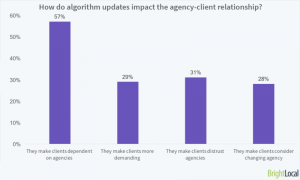Working for a start-up is slightly different than working within a corporate environment.
For those inside the start-up hub this may seem obvious but for those wanting to dive-in it is important that you try to understand that your tasks will not be limited to any one thing, things change quickly in the start-up environment and a lot of the time you’ll find yourself out of your comfort zone.
One day you could be building a sales pipeline or coding a landing page, the next you could be shooting and editing a guerrilla marketing video.
In this article I discuss what I consider to be key steps in helping you get a start-up job. Relax though, you will NEVER have enough time to learn everything you think you should learn for a specific job, you’ll end up doing a lot of learning on the job.
Identify your interest
Interestingly, a lot of people want to work in a start-up without too much of an idea of what exactly they want to do when they get there.
This is somewhat understandable as the start-up industry, if I can call it that, does seem very exciting to those outside its seemingly uber cool walls. However, regardless of your motivation behind wanting to work for a start-up you must be interested in what they do and you must be willing to show that you have something to back up your claims of interest too.
For example. If you are interested in coding or computer programming you should identify the various start-ups which are working on software projects that could excite you. It’s no good coding for a start-up that is creating the next best piece of economic forecasting software if all you want to do is code for mobile gaming platforms, you won’t last long. You must identify your interest.
For example, I was interested in working for a start-up because I had an interest in social media, blogging, writing and technology. I knew, through reading the likes of Mashable and Techcrunch that start-ups needed people to help build their brand or image, ironically many start-ups negate this area of their business because they don’t have the time.
In fact, once I started to research more on start-up companies I quickly realised that many had woefully poor social media presences, if any at all! You can do the same, look at potential gaps or missing ideas you can/ could plug for them and work on it.
So, going back, I thought I had a good grasp on the mechanics of building up an online community thanks to my experiences blogging and writing for student papers and I knew I could offer a start-up something. I never pretended to be a ‘social media guru/ninja/wizard/Jedi’ or whatever some people label themselves, because I wasn’t. And, I’ve never met one either.
However, in order for me to get a start-up job I needed to produce something that would show off my skills and knowledge so that I could present it to the guy or gal who could/would potentially hire me.
Now before I start, I know some of you will say ‘hey, you can apply this logic to any job application’, I agree, you can. However, this piece tries at least identify certain areas that start-up CEO’s or recruiters specifically look for, in my own opinion of course.
Build up your portfolio
For me, this is the most important step. You may have other opinions and I would very much like to hear them but my rationale is that if you show your talent off just like a peacock shows off its beautiful feathers, someone will eventually be attracted to you.
So what do I mean by that exactly? Let’s look at HTML/ CSS coding as an example. Say that you love coding and you have built a website for your mate’s paint-balling group. Perfect. You can show a potential employer this, it may look good, it might not interest them personally but you can demonstrate a level of technical ability. But let’s say the start-up companies that you have identified, and want to work for, are very much focused on photo content sharing. You could build up a portfolio website/blog to not only show off your HTML and CSS skills but also use the platform to highlight your photographic and editing skills as well as your creativity.
Publish your best pictures for example and even make a section on ‘how to take pictures in bad light’ with a video? This does two things. First, it proves you can code and second it also proves that you have an interest in their specialist field. You can apply this to many other start-up ideas.
If you can’t code, show that you can use a CMS (content management system) such as WordPress, and set up a site there, as this is also a skill and many start-ups run their blogs on these types of platforms.
Learn basic coding skills
So, you can’t code. Why not?
Now, maybe you are worried about the technical aspects of coding or you are getting worried about your lack of coding knowledge but learning the basics of HTML and CSS coding is simple and can help you very much in your quest for finding a start-up job. One start-up CEO I spoke to when working in the Berlin start-up bubble told me that practically everyone he knew in the industry and those he hired had or had to have some basic working knowledge of HTML, CSS coding.
But why learn? You just want to write blogs and post pictures right? Sure, you can but you need to understand that start-up teams are small and that collaboration within them is key. A lot of the time you’ll work alongside software developers and they may ask you if any images on the blog are positioned absolutely or relatively in order for them to understand why the layout of the mobile app is going all wonky! If you can answer this, you are bringing value to the team.
So what do you do, how do you learn? Learning HTML as I mentioned before is relatively easy. Seriously, I did it so it must be. You can learn the basics in a couple of days. The way I learnt code was by using these platforms: Code academy, Treehouse and good old YouTube tutorials. After a while I got hooked and bought a few books. Give it 5 or 6 weeks for an hour a day of practice and you will feel confident you’ll eventually feel like you can command the basics.
Produce a blog
Yep, it was coming. Some people blog to moan, some people blog to write about their passion or hobby and some people blog to make money. I’d love it if you could do all the above but for now I suggest you blog in order to help you in your quest to secure a job.
If you can’t code just yet find a free blogging platform, there are many and all are different. WordPress, Blogger, to name just two popular platforms.
But what are you going to blog about? Simple. YOU and your interest. Use this blogging platform to showcase your skills just as I mentioned before. If you love football, write about football from your perspective. If you are passionate about mobile phone technology, write about that and how you see the industry moving forward. The idea is that you can show to a potential start-up employer that when you have an idea or passion you act upon it and you have something to say. Having a nice looking blog that is maintained regularly shows him or her that you are proactive, confident and knowledgeable. Oh, and have fun doing it too!
Targeting with social media
Wow…halfway through the post. Maybe make a coffee or a cup of tea as this next part is a biggie!
So, we have thought about what interests us and we now have a better idea of how to use that skill or interest to our advantage when looking to work for a start-up company.
But how do we go about contacting these people? A lot of start-ups aren’t advertising job openings and you are sure there are more than just a handful in your area yet you can’t seem to find any listed on Google (or other popular search engines!).
Welcome to Twitter-verse!
As I said right at the beginning, many start-ups don’t have the time, especially on social media, to invest on these platforms. I know, it’s strange to think that start-ups, the very embodiment of new ideas and technologies seem to neglect this crucial area, but it happens – I worked for one I know. It happens because team sizes are small and critically it takes a lot of time and resources as well as knowledge to build up a valuable online community and presence.
So, going back to the original question, how do you find those people that you want to get in touch with to get a job? Scour Twitter with search words such as ‘start-up’, ‘start-ups in LA’ etc…you get the idea. The start-ups you’re looking for my not be prevalent on Twitter as I mention above, so what else can you do to find contacts?
First I would recommend you search the Apple App store for apps you may consider to be of interest and click on the developers details. You can also do this on Google Play. I would recommend that you search all the start-up job websites (yes there are quite a few) and make notes on all the positions and contact details that you find that will suit your skills. Then log on to on to Twitter and use all the information you’ve gathered to find these companies and people.
I targeted and followed as many that were on there, including the job boards. I engaged in conversation by asking if positions were open and I also retweeted things of value that my targets had posted. I would then log my findings (urls, names) in my little red book.
This gave me exposure and opened up a potential network for the future. Critically, I didn’t find my job through Twitter but it enabled me to get a sense of what start-ups were looking for such as developers, content managers, project managers, designers etc so I knew I was on the right track.
It can also help your confidence and opportunity too. By this I mean that if you click on a job description a start-up is advertising, sometimes you will notice that they may only want a junior designer with basic Photoshop skills and/or little experience as they have come to realise that their business model is not presently scalable, so, they would rather cast their net wide and get someone in quickly that can help them out without the big wages, so it’s worth looking.
Identify Start-up environments
The question you have to ask is where are the majority of these start-ups based? You will probably find that most start-ups actually bunch up together in certain sections of a town or city. If you are super keen to get that job why not re-locate or show that you have researched your potential journey – that may be a simple point, but every little detail helps.
Prepare to relocate
Yup, if you really want to work for a start-up that badly then you could always relocate as I mentioned before to get nearer the action. Whilst I was looking for a start-up job I identified the best places to be to get the most success out of my job hunting. Although I know this is not always possible, I moved to a different country to give myself the best chance. You don’t have to do this of course but you will have to think outside the box and think of every angle you can to give you edge over the competition, if that means moving closer to your target for that edge, so be it.
Learn the basics of SEO
I’m sorry guys, more learning. Yes SEO (Search Engine Optimisation) can get very deep and complex and technical but all I am suggesting here is that you have an idea about how your content online can be greatly affected by good, simple SEO practices. Of course, I won’t be giving you an SEO lesson here but if you have a basic understanding of ‘on-page’ SEO that will help enormously – well worth researching.
Learn how to produce an animated presentation
One way to grab your interviewer’s attention is to have a presentation ready before the interview.
A presentation? It can’t hurt, too much! I made a presentation that showed my potential employer the way I would manage my potential employers social media content. I used a program called Prezi which is a wonderful visual tool that can really make your claim for the job even more valid. You want to check it out, seriously. You could make a presentation about how you would improve some aspects of their website or how you would go about fixing a gap in their software. Whatever you do, if you make an effort and a valid point you could be on to a winner.
The follow up email
Always, always, always follow up any meeting or interview with an email. Why? Because it shows you care. It shows that you have the determination and desire to follow through on securing the job. This can seriously help the CEO in their decision making demonstrating that you’re someone that chases an opportunity and also understands the busy nature and the ‘muck-in’ type attitude that is required with in the competitive start-up environment.
Importantly, the follow up email is also viewed as a common courtesy by many too. Naturally, many of these tips can be applied to other job searches too.
That pretty much wraps up this post. Thanks very much for reading and I wish you luck in your ventures. Please feel free to comment and share, and I’d love to hear your point of views on the above or even better your experiences in looking work in the start-up industry. If you have a difference of opinion, criticism or disagree I’d very much like to hear it too in the comments below.
(305)








